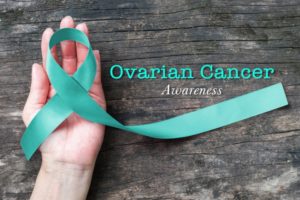MARQUEE HEALTH CLINIC RECOGNISES OVARIAN CANCER AWARENESS MONTH
JAMES PHILLIPS- OSTEOPATH
OSTEOPATHIC AWARENESS AND ANALYSIS OF OVARIAN CANCER AND FEMALE REPRODUCTIVE DISORDERS AND CONDITION.
Osteopathic assessment of the female reproductive health initiates attention to the mechanical (structural) and functional (soft tissue) components, that will directly or indirectly affect the health and environment regarding circulation. The removal of such related symptoms which may be a myriad similar to reproductive organ may assist in better analysis and identity of potential or compounding problems.
Osteopathic treatment may assist directly with alleviation, mechanism and functional barriers reducing a meta-inflammatory static pressure pertaining to the pelvic girdle and the congested environment transforming the health of the female reproductive system, which may also assist in an improved understanding through a clearer feedback system of reproductive cycle and activity.
The removal of symptoms will come from improved diaphragmatic concertation (contraction), regulation and rhythm with the balanced fluid dynamics (circulation) as a result of the removal of static congestion which can impact over time in tissue whether bone, muscle or organ.
This osteopathic approach to the pelvic girdle which provides a housing for the female reproductive system is to maintain balance, glide of mechanical action through a multi- dimensional plane of axis, maintaining appropriate support structurally, providing potential spaces while enhancing circulation, therefore condition of tissue.
OLIVIER LEJUS – ACUPUNCTURIST
THE ROLE OF ACUPUNCTURE IN CANCER TREATMENT
Being diagnosed with cancer is a life changing experience. While the chances of survival have greatly improved in the last decade, the use of radiation, chemotherapy, and powerful medications can have devastating effects on the mind and body of the patient
As an acupuncturist, I am often asked how much complimentary medicine; especially Traditional Chinese Medicine can help. While each case is different, in this article, I will try to clarify how much can be really expected.
First of all, it is important to make clear that, no complimentary medicine practitioner can legally claim to cure cancer; therefore our goal is to assist Western medicine in eliminating, or at least reducing the traumatic side effects of the oncology treatments.
Cancer is a very complex medical condition. There are over 300 different types of malignancies; each of them with their own clinical behaviour, and treatment approach. The success rate against cancer, as in most life-threatening medical conditions, depends on how early the diagnosis has been made, and the forms of treatment which were available.
In the case of ovarian cancer, there are no early detection tests available, and most of its symptoms such as abdominal bloating, increased urination, changes in bowel habits are similar to many other less serious medical conditions, so it is very easy to miss the warning signs. As in most cancers, the patient will experience unexplained weight loss, and severe fatigue, so it is always important to see a doctor when these symptoms appear.
In cancer, abnormal cells mutate, divide and quickly spread over the body. While chemo-therapy use chemical poisons to kill these cancer fast growing cells, other healthy fast-growing cells also get destroyed. Hence, the debilitating side effects occur ranging from severe fatigue, nausea, to vomiting, constipation, and loss of hair.
The nausea and vomiting which occurs during chemotherapy is often worse than the treatment itself. The symptoms can be so traumatic that sufferers routinely start experiencing nausea at the thought of their next clinic visit.
Research has shown that having acupuncture treatments during chemotherapy can significantly reduce the frequency and severity of these episodes. In addition, by using acupuncture for cancer related pain control, we can also help to reduce the use of narcotic drugs and minimize their mental and physical side effects.
NICOLE TURRELL- MASSAGE THERAPIST
The primary treatment for ovarian cancer can be surgery or chemotherapy. From a remedial massage therapist perspective I’m going to look at what type/style of massage is helpful for ovarian cancer and what are the benefits. Massage has been found to be effective for reducing pain, relieving nausea, boosting the immune system, reducing fatigue, reducing tension in the muscles, relieving depression and anxiety, improving range of motion and increasing lymph flow. This will be from a rehabilitative process fully understanding the contraindications that can come from a metastatic state. The primary concern with any stage of cancer is containment along with the management at the primary level of treatment.
The following are some of the methods which may be helpful in the management and rehabilitative stage;
– Lymphatic drainage – Complications after surgery can be Edema. Scarring and swelling in the area can cause a backup of lymph fluid.
-Swedish- Gentle strokes help circulate the blood and lymph fluid and reduce stress
-Seitai or shiatsu- Japanese technique used to improve the immune function in its fight against cancer.
-Tuina- Chinese technique that helps strengthen the internal organs, especially the intestines, which are affected most by chemotherapy.
ATIA TANI- COUNSELLOR
CHALLENGE OF HUMAN DESIRE FOR CONTROL
MINDFULNESS AS A SUPPORTIVE TREATMENT FOR OVARIAN CANCER
We all implicitly understand that as humans, we can exercise our control over certain areas of our lives however many things cannot be controlled. Our understanding of our good health and what contributes to it has been changing and developing over millennia.
Cancer as a disease has been understood as an ultimate danger to our existence and therefore our sense of security. The fear and anxiety response are natural inherent interactions of our psyche with such a threat. Now we also begin to understand that these responses can further undermine our health.
Ovarian cancer in particular can present additional existential threat. Threat to ovaries as defining female body organs under direct danger can impact further our mental health. Our definition as females and our questioning what defines our identity can be a fundamentally challenging part of the diagnosis.
The health and wellness industry have been increasingly incorporating strategies supporting clients’ psychological and emotional wellbeing. This change has been supported by some important research in the area of use of mindfulness strategies in treating various types of cancer.
Receiving a diagnosis of cancer and experiencing medical treatment present a threat to self and involve major life role modifications that can be overwhelming for the patient. For example, up to 43% of patients with cancer report significant distress. Patients with cancer endure physical and emotional events during and after treatment that can repeatedly activate a stress response, which involves the mobilization of the biological resources needed to cope with a demand or threat. When the brain detects a significant demand, the hypothalamus produces corticotropin releasing hormone, which stimulates the anterior pituitary to secrete adrenocorticotropic hormone to trigger the adrenal glands atop the kidneys to release the corticosteroid hormone cortisol. Chronic activation of this system in patients with cancer, especially those with greater disease severity, has been found to be associated with further hormonal dysregulation, which predicts disease progression and decreased survival time for breast, lung, ovarian and renal cell carcinoma patients.
Mindfulness practice represents a novel learning experience founded on stress-arousal reduction by engaging attention to and awareness of bodily sensations and experiences without judgment or reactivity. The process of mindfulness is commonly defined as “the awareness that emerges through paying attention on purpose, in the present moment, and nonjudgmentally to the unfolding of experience moment by moment.” Programs that aim to cultivate mindfulness, such as the widely disseminated mindfulness-based stress reduction program, are available at some major cancer treatment centres across the nation, and empirical reviews have demonstrated their utility for attenuating subjective states of cancer-related symptoms. As such, mindfulness and related programs are housed within the broader medical models of mind-body medicine and integrative oncology.
The information in this article has been sourced from the original article Mindfulness Practice Reduces Cortisol Blunting During Chemotherapy – a randomized controlled study by David S. Black; PhD Cheng Peng, MPH; Alix G. Sleight, OTD; Nathalie Nguyen, MPH; Heinz Josef Lenz, MD; and Jane C. Figueiredo PhD (2017)

